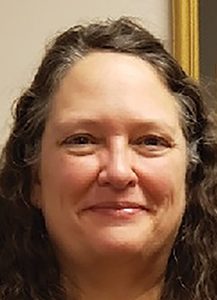Studies highlight local impact of Medicaid expansion in Rowan County
Published 12:05 am Wednesday, March 29, 2023
SALISBURY — Almost 10,000 Rowan County residents are estimated to be eligible for Medicaid coverage under the new state expansion, according to a 2019 study conducted by researchers at George Washington University called “The Economic and Employment Benefits of Expanding Medicaid in North Carolina.”
“We’re excited, but we also know it’s going to be a lot of changes,” said Alyssa Harris, director of the Rowan County Public Health Department who shared the study with the Post.
While 10,000 is the study’s estimate, Micah Ennis, director of the Rowan County Department of Social Services, said based on what she has seen the number of residents who could be eligible for coverage may be even higher.
“(There could be) about 7,000 individuals being enrolled after the first year and then over 9,000 after full ramp up. These numbers were estimated back in January 2022, so when we look at it we’re considering the possibility of somewhere around 13,000 after full ramp up,” Ennis said.
Medicaid expansion was made official on Monday after Gov. Roy Cooper signed into law House Bill 76, also known as Access to Health Care Options.
Not only will the expansion provide coverage for more low-income adults, the study shows it could also grow the county’s economy by $74 million because of the influx of federal funding. The expansion could also create over 360 more jobs in the county, a majority in health care, such as hospitals and clinics, but also in other industries like construction, retail or wholesale trade.
“Medicaid funding received by hospitals, clinics or drug stores is used to pay workers’ salaries and to buy other goods and services. The economic benefits multiply as these funds are, in turn, used to pay for mortgages or rent, buy food and pay state and county taxes,” the study reads.
It also estimates just over $1 million more in county tax revenues will be added by expansion.
Rowan County Manager Aaron Church pointed out that while county tax revenues may increase, county expenses could as well.
“At this time I just know it (Medicaid expansion) is going to affect revenue and expenditures, but it won’t be before June until I know exactly how it will,” Church said.
Another study Harris shared was “A Profile of North Carolina’s Low-wage Uninsured Workers,” which estimates the county has nearly 16 percent of uninsured, non-elderly workers who would gain coverage with Medicaid expansion. The study was conducted by the Georgetown University Health Policy Institute.
State lawmakers voted to finally approve the bill last week in an 87-24 vote in the House. The Senate gave approval earlier in the month. But because Republican lawmakers in the General Assembly tied expansion to the state budget, the bill will not fully go into affect until Cooper signs a final budget agreement, which usually happens over the summer.
While local lawmakers Sen. Carl Ford and Rep. Kevin Crutchfield voted in favor of the bill, Rep. Harry Warren and Rep. Julia Howard voted against.
In an email to the Post, Carl Armato, CEO and president of Novant Health, said: “Yesterday was a monumental day for North Carolinians’ access to healthcare. For more than 600,000 residents, the passage of Medicaid expansion means they will gain the insurance coverage that enables preventative and other care that we believe should be accessible to all. Novant Health has been a tireless advocate for Medicaid expansion for over a decade, and our commitment to health equity will not stop as we celebrate today’s enormous step forward alongside those who will benefit from it most: our patients.”
North Carolina is now the 40th state to expand Medicaid under the Affordable Care Act.





